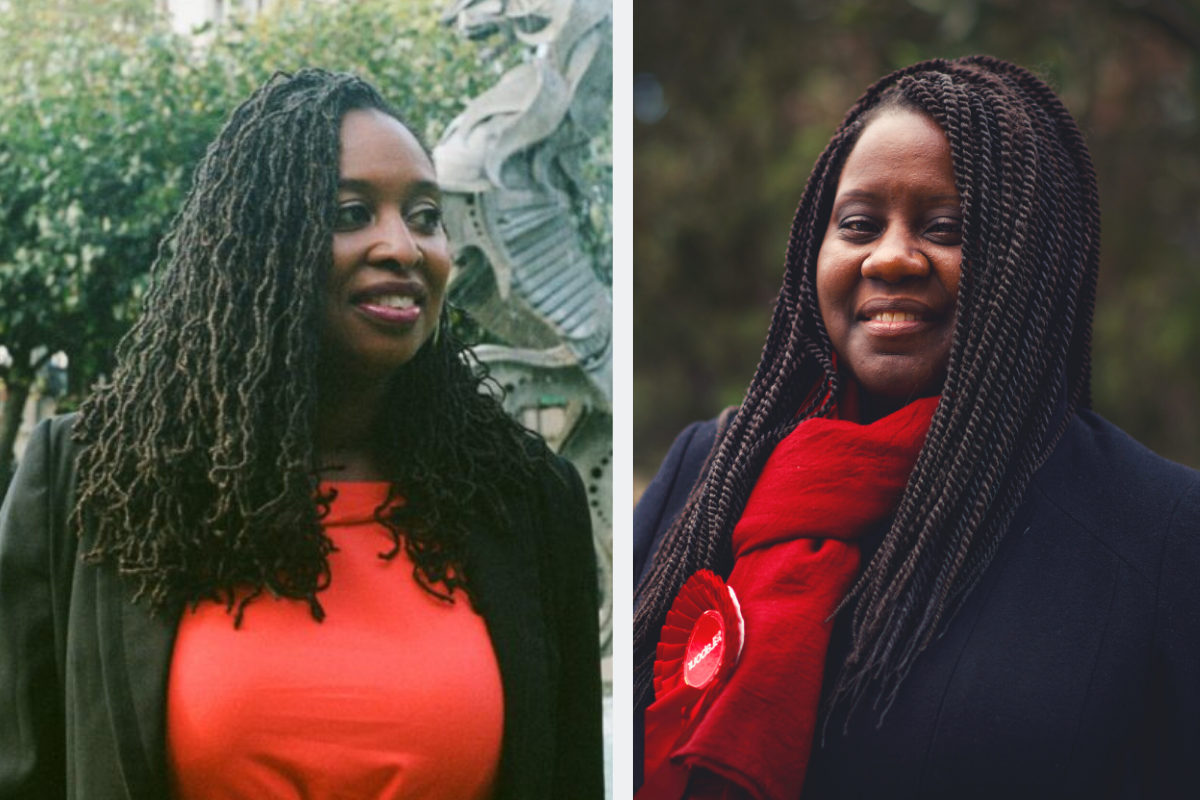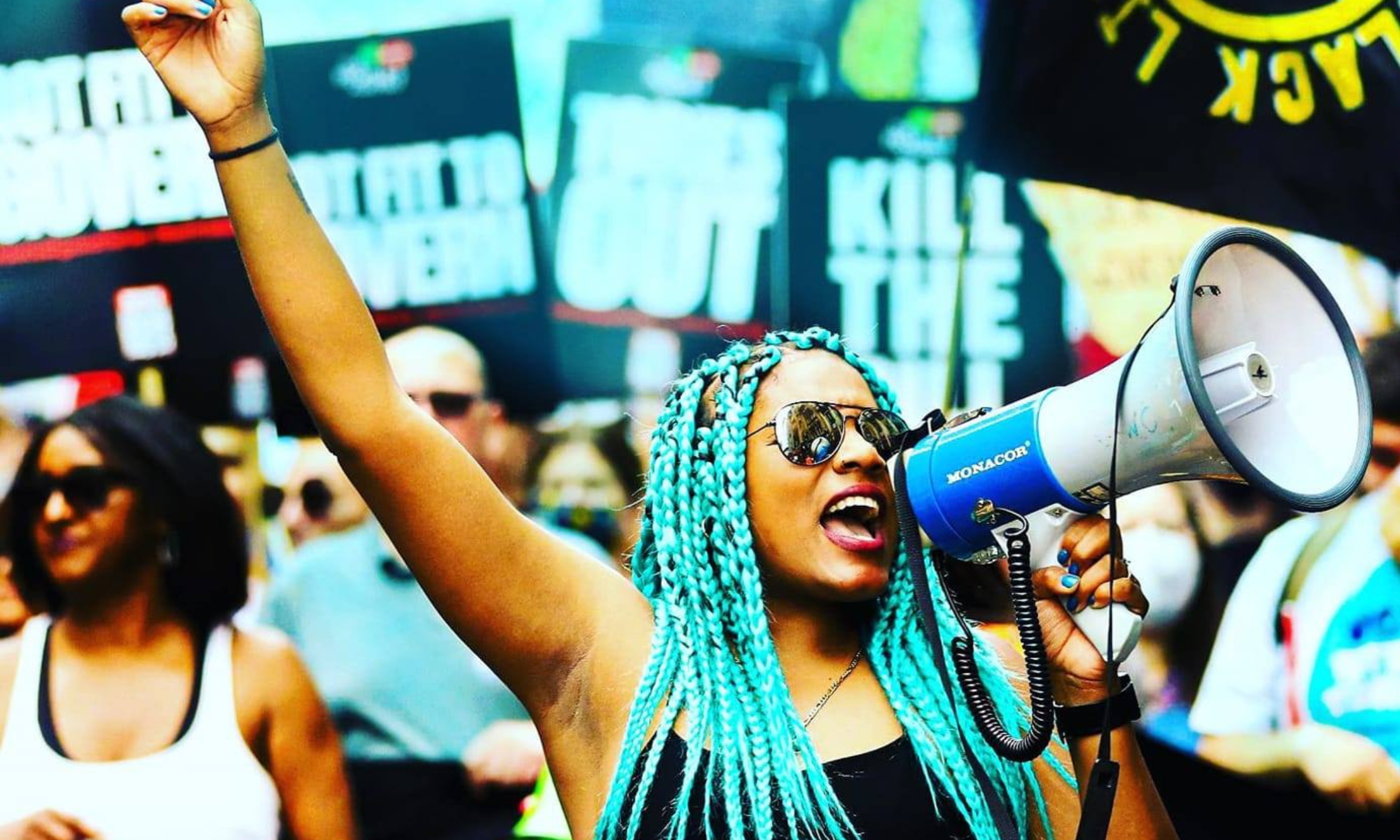
Google is free, so why am I still being mixed up with other black MPs?
This wasn't the first time this has happened and it won't be the last – once I was mistaken for a cleaner while waiting for a lift in parliament.
Dawn Butler
05 Feb 2020
Dawn Butler MP (left) and Marsha de Cordova MP (right). Two different women.
Photography via Zeinab Batchelor / Myah Jeffers
Throughout my life, both in politics and in the real world, I have struggled to be seen. As black, working-class women, the world is always ready to ignore, minimise or dismiss us.
When the BBC confused me with Battersea MP and Shadow Minister for Disabled People Marsha de Cordova earlier this week, it felt like an all-too-familiar slight on us as black women.
This was not the first time people whose job it is to know about British politics had difficulty telling one black MP from another, and I doubt it will be the last.
To pour salt on the wound, when the Evening Standard reported on the mix-up, the paper mistakenly used a picture of black Streatham MP Bell Ribeiro-Addy, the new Shadow Immigration Minister, instead of Marsha’s picture.
Marsha and I have been confused for each other a couple of times. We don’t always talk about it. Sometimes we will laugh about it. Sometimes mistakes happen. But it’s not about making a mistake. It’s about making an effort to recognise people for who they are.
“Black women in politics are repeatedly called upon to justify our existence in that space”
Just think how many white men there are in parliament, and how rarely this happens to them. When in doubt, all you have to do is Google – it’s really not that difficult.
Taken in isolation, these errors could be seen as innocent mistakes by overworked media professionals. But the regularity with which this sort of thing happens points to a more serious issue with how our media runs.
Earlier this month, after the BBC used footage of LeBron James when reporting the death of Kobe Bryant, journalist Gary Younge wrote about how he was mistaken for Tottenham MP David Lammy. Gary explained: “these aren’t any old mistakes – they are the same old mistakes… as minorities we are hypervisible; as individual human beings we are relatively invisible.”
No matter what office we hold, or what we achieve in life, to some people it seems our only notable feature is our blackness, and that is what apparently makes us interchangeable with other black people. As black women in politics, we are constantly reminded that to some people, we will always be fish out of water. We are repeatedly called upon to justify our existence in that space.
In the House of Commons, new Erith and Thamesmead MP Abena Oppong-Asare was mistaken for a cloakroom attendant when a Tory MP handed her his bag. New MP for Vauxhall Florence Eshalomi was mistaken for another black MP while coming out of the voting lobby. I was once mistaken for a cleaner while taking a lift.
When Sir Lenny Henry was knighted last December, ITV used a picture of Ainsley Harriott – political commentator Ash Sarkar was once mistaken for Chingford and Woodford Green parliamentary candidate Faiza Shaheen by both Tory MP Nadine Dorries and by BBC Newsnight host Kirsty Wark. A lack of diversity in our media definitely has a part to play in these constant errors. But they also suggest a lack of care.
“Abena Oppong-Asare MP was mistaken for a cloakroom attendant when a Tory MP handed her his bag. I was once mistaken for a cleaner while taking a lift”
There is a real sisterhood between black women in the political arena, but that doesn’t mean we are all the same person. We all have our priorities, we all have things that we care passionately about, and we each deserve to be recognised on our merits rather than be reduced to our skin colour.
I want to make sure that the fight for equality stays at the heart of what my party does – it was part of my decision to run as deputy leader of the Labour Party. I want to use my platform to fight for all of those who feel ignored, misunderstood or overlooked.
And if this sort of thing happens so regularly to people like us who have public profiles, imagine what it is like to be a person of colour with no media platform?
This happens to every single person of colour on a weekly basis. It is our lived experience. “You fit the description of the suspect” is heard so often by young black men on the street, that it has become a tired trope. We often adjust, compensate or explain just to get through. We don’t take on every battle because it would exhaust us.
We’re living in a topsy-turvy world right now. It has somehow become more terrible to talk about racism than it is to actually be a racist.
We all want to feel that what we do in life matters, the trials we go through, our triumphs and our defeats. All we want to do is be regarded as unique individuals, to not be pre-judged and diminished.
And for those of us trying to be part of transforming the country, all we ask is that the media grants us the same courtesy as everyone else.








